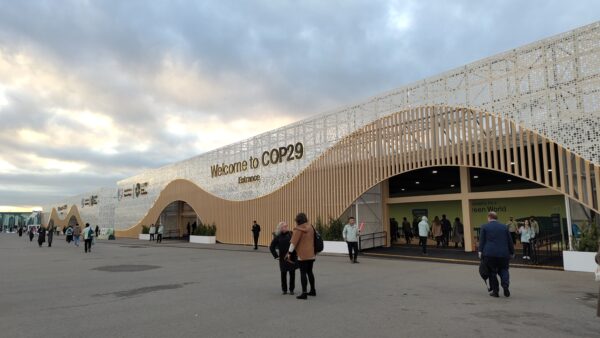Green Climate Fund strengthens its accreditation framework
Bianka Kretschmer
Share

The new policy is a direct response to widespread criticism that sparked earlier this year after a Board decision to accredit Deutsche Bank, one of the world’s largest financiers of coal, as a partner institution for the implementation of climate projects in developing countries. International watchdog organisations estimate that Deutsche Bank has channelled EUR 15 billion into the coal industry between 2005-2014 through lending and underwriting transactions.
As coal is the most carbon intensive fossil fuel and therefore one of the dirtiest ways of generating electricity, these investments are in direct conflict to the Green Climate Fund’s goal of significantly contributing towards keeping global warming below 2°C by the end of the century – a limit that was adopted by more than 196 countries via the 2010 Cancun Agreements and whose success relies heavily on aggressive decarbonisation. Since 2009 over a hundred countries have been calling for a temperature goal limiting global temperature rise to below 1.5°C above pre-industrial levels and at COP 21 countries will consider strengthening the long term global temperature goal accordingly.
To limit warming to 1.5°C or below by 2100, all fossil fuel emissions, including energy and industrial emissions, need to be reduced to close to zero by 2050. To hold warming below 2°C with a likely chance, this needs to happen just one to two decades later. One of the most vital elements for staying below the current internationally agreed temperature limits is the decarbonisation of the electricity sector, which produces about 40 % of global CO2 emissions.
The window for action to ensure global temperature increase can be limited to below 1.5°C or 2°C is closing rapidly. Today’s investments will define the emission levels of tomorrow. This is especially true for the power sector where investments often run for 60 years or more. Rapidly shifting investments away from fossil fuels is therefore immensely critical.
The Green Climate Fund is one of the key institutions that were established by the international community to help make this shift happen. Its mandate is to promote the paradigm shift towards low emission and climate resilient development pathways by providing support to developing countries to limit or reduce their greenhouse gas emissions and to adapt to the impacts of climate change. Thus, selecting the right partners to implement the Fund’s projects and programmes will be key for the GCF to achieve this transformative mandate.
In this context, the accreditation of an institution that has large-scale commercial interests in the extraction and deployment of coal as an energy source seems to be at odds with what this Fund is all about. The GCF Board still decided to go ahead with accrediting the Deutsche Bank, mainly because it acknowledged the importance of shifting the investments of large commercial banks away from fossil fuels for succeeding with the paradigm shift that is inscribed in the Fund’s DNA. This strategy is admittedly risky but can also be an opportunity for maximizing the overall impact that the GCF can make.
The central question now is how much of a difference the Green Climate Fund, capitalized with USD 10.2 billion, can make in bringing institutional change to a global banking and financial service company with more than EUR 1.7 trillion worth of assets.
Much will depend on how serious the GCF Board is about holding its partners accountable to the Fund’s mandated objectives. The last Board meeting on 2-5 November 2015 in Livingstone, Zambia, brought some promising signs in this regard. As part of the Fund’s monitoring and accountability framework, the Board agreed on a policy to check every five years to what extent its partners’ overall portfolio of activities – beyond those funded by the GCF – have evolved in the direction of the Fund’s paradigm shift objective.
Under the Fund’s current accreditation framework, an institution receives an accreditation for five years before it has to re-apply. With the new accountability policy, partners that continue to heavily invest into coal and other fossil fuels risk loosing their accreditation after their initial accreditation period ends.
The Board thus made it quite clear that accreditation with the GCF comes with a responsibility. This matters because, through the Fund’s fit-for-purpose accreditation approach, the Board invited a wide variety of institutions to join the Fund’s path towards low emission and climate resilient development. Now it also signalled that only those that act and truly work towards the global transformation can remain the Fund’s long-term partners.
To achieve rapid divestment from coal, a strong policy signal is needed and stakeholders are looking to the Paris COP 21 to deliver this signal to trigger action within the investment and scientific community.
Innovative institutions like the Green Climate Fund with its transformational mandate have the potential to amplify this signal, as they have the ability to translate it into directly holding its partner institutions accountable. Much needs to be done to operationalize the Fund’s accountability framework in a robust manner but with the Zambia meeting the Board has shown that accreditation to the GCF is not a free pass.











